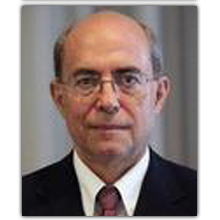|
Dr. James Leckman
James F. Leckman, M.D., Ph.D., is the Neison Harris Professor of Child Psychiatry, Psychiatry, Pediatrics and Psychology at Yale. For more than20 years he served as the Director of Research for the Yale Child Study Center. One of Dr. Leckman’s longstanding research interests has been the interaction of genes and environment in the pathogenesis of Tourette syndrome and Obsessive-Compulsive Disorder (OCD). His research on these disorders is well known and multifaceted from phenomenology and natural history, to neurobiology (neuroimaging, neuroendocrinology, neuroimmunology) to genetics, to risk factor research (perinatal factors are important), to treatment studies. Based on his work on OCD, Dr. Leckman has also been drawn to study normal patterns of evolutionarily conserved obsessive-compulsive behavior. A major focus has been on parenting behaviors and the role of the bio-behavioral systems that closely interconnect our stress response system with the neural and hormonal pathways that underlie attachment and bonding. Studies have included longitudinal brain imagining and neuroendocrine studies of new parents. Most recently, in partnership with colleagues at UNICEF and the Mother-Child Education Foundation based in Turkey, he has begun to explore the question whether strengthening families and enhancing child development is a path to peace and violence prevention. Related efforts include the Early Childhood Peace Consortium that was launched (September 2013) in New York in at the United Nations and the 15th Ernst Strüngmann Forum that took place in Frankfurt, Germany in October 2013. The deliberations of 40 international experts from a broad range of scientific disciplines are summarized in volume entitled, Formative Childhoods: The Transformative Power of Children and Families, published by the Massachusetts Institute of Technology Press in 2014. More information is available at: http://childstudycenter.yale.edu/international/peace/index.aspx.
|







